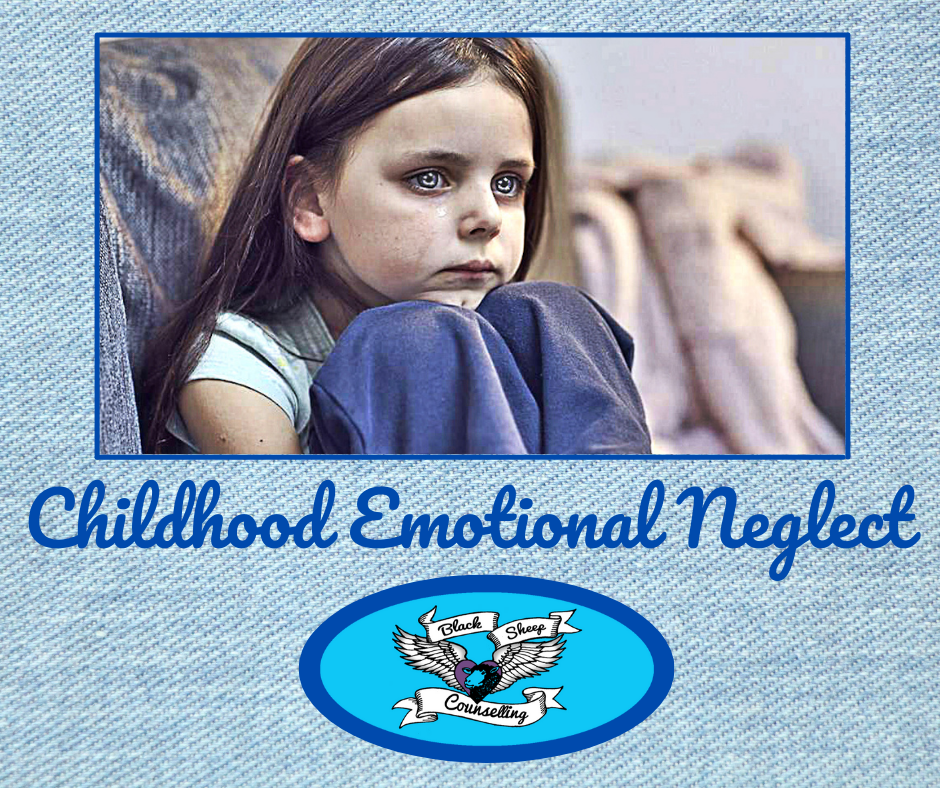Childhood Emotional Neglect (CEN)

Unlike abuse and maltreatment which are adverse actions taken by a parent/caregiver towards a child, childhood emotional neglect (CEN) is mostly a parent/caregiver’s failure to act. Many people like myself who experienced CEN were well provided for in necessities (and in my case, even luxuries). ECN can certainly be intentional; however, it usually is not. Most CEN goes unnoticed by other people the child may come into contact with (such as teachers, extended family members) and many parents are not aware they are doing it. CEN is the absence of crucial emotional interactions such as attunement, connection, nurture, and inaction responding to the distress of a child. We humans learn relational safety and self-regulation through co-regulation with an adequate caregiver in early life who can attune to our needs approximately 30% of the time (CEN does not occur because a parent works outside of the home or is occasionally distracted; instead, it is an ongoing pattern of inattentiveness to the child’s emotional needs).
What Does CEN look like in the parent-child dynamic?
- ignoring the child’s emotional distress
- invalidating the child’s feelings (“you’re fine”)
- demeaning the child’s distress with insults such as “you are way too sensitive” or “stop crying or I’ll give you something to cry about”. These statements send a meta message to the child that their emotions are not tolerated and that their distress is unimportant (see here for the benefits of crying: https://blacksheepcounselling.com/2021/10/the-benefits-of-crying/).
- “tough love” – expecting a child to have the ability to manage their emotions and scold them when they struggle with emotional regulation; intellectual bullying, presuming expert advantage to belittle
- Using hostile humour and passing if off as playful teasing/targeting the child’s soft spots
Not surprising, CEN can create relational struggles throughout life. An adult who experienced CEN struggles with:
- self-regulation/low distress tolerance
- emotional reactivity
- poor self-concept & negative self-appraisals
- heightened sensitivity to rejection (real or perceived)
- difficultly seeking the support/help of others (for more on this see: https://blacksheepcounselling.com/2021/06/counter-dependence/)
- dissociative tendencies & feeling numb
- internalized shame & self-blame
- inability to describe emotional experience
- difficulty maintaining relationships
- distrust of others
- sabotaging relationships in an effort to ward off rejection
- increased risk for depressive or anxiety disorders; apathy
- self-harming coping mechanisms (substance abuse, cutting, disordered eating, et cetera)
- developmental delays
- hyperactivity
- aggression
Parents/caregivers don’t generally intentionally set out to cause their children harm. A parent/caregiver’s inability to meet the emotional needs of a child is most likely due to issues such as poverty, their own physical or mental illness, elder-care concerns, undue stress, intergenerational trauma, domestic violence, or other situations that impede optimal nurturance and attunement needed for a child’s healthy development. Such impairments in parent-child bonding creates what is commonly known as “insecure attachment” (for more on this: https://blacksheepcounselling.com/2017/12/attachment/ & https://blacksheepcounselling.com/2019/03/adult-attachment/).
Finding Treatment
When seeking out a therapist, look for someone who works from an attachment /relational trauma lens and treats issues such as complex post-traumatic stress disorder (C-PTSD) and developmental trauma. I encourage individuals to spend significant time searching prospective therapist websites and engage in some “meet-and-greets” to better determine if this person is someone you may wish to heal your relational wounding and process CEN with. This relationship can be the foundation for creating more meaningful relationships moving forward, so give yourself the gift of finding someone you think you can trust as you do this very important healing work.
Support groups and group therapy can also be a great adjunct to individual therapy as it can foster much needed connection. It is also incredibly validating to meet others who struggle with similar issues to decrease feeling of aloneness and shame. Group therapy usually offers skill building curriculum that can be practiced within the group context which cultivates mastery, bonding, and effective coping strategies.

